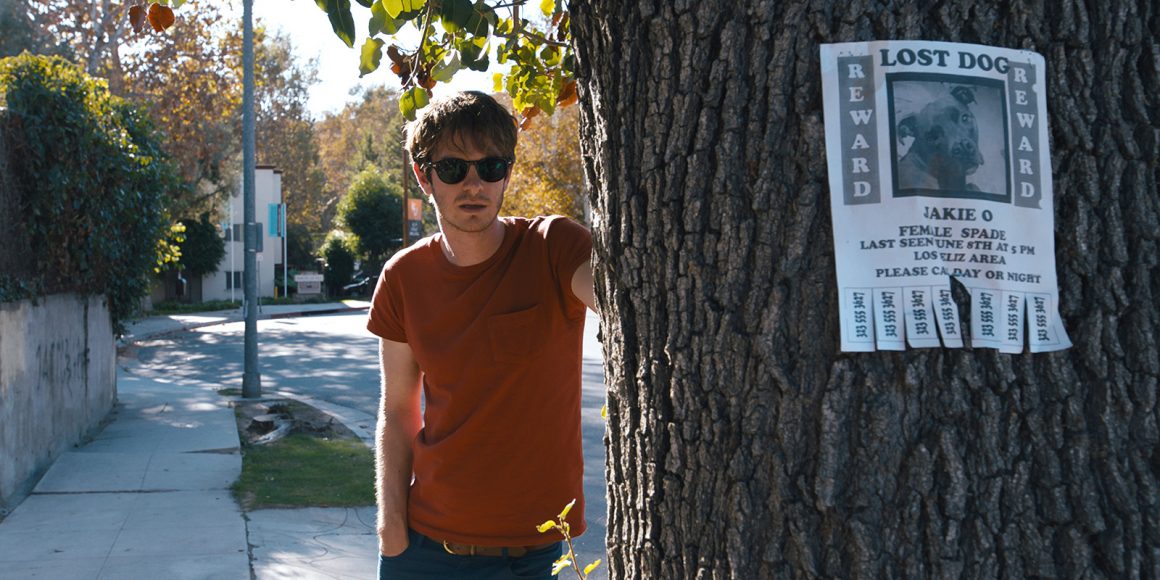
Calgary Film 2018: Under the Silver Lake
By Thomas Johnson, October 7 2018 —
Under the Silver Lake, a Calgary Film entry by director David Robert Mitchell (It Follows), takes place in a version of Los Angeles that seems surreal through outsider eyes. Sam, an easily distracted, chain-smoking somnambulist played by Andrew Garfield, wanders the city’s hills, valleys and bomb-shelters on a bleary-eyed quest to find his missing neighbor. In the process, he reveals the identity of the city’s ruthless dog-killer and unearths a centuries-old subliminal messaging system hidden in plain sight, guiding him towards LA’s sinister metaphorical and literal underground. Hijinks, romance and no shortage of illicit substances ensue.
While the film makes extensive use of the panoramic cinematics Mitchell practiced in It Follows, Under the Silver Lake is stylistically more indebted to David Lynch’s Mulholland Drive and Blue Velvet — dreamy meta-narratives where the plot plays second fiddle to the hallucinatory action leading one vignette to the next.
Structurally and spiritually, however, Under the Silver Lake wears its most prominent influence on its sleeve. With its labyrinthine narrative, folklore, wacky names and layers upon layers of intrigue, it most closely resembles the literary works of Thomas Pynchon, chronicler of all that is quintessentially and inimitably Californian. The recurring motifs of codes, obscurantism and conspiracy are derivative of Pynchon’s The Crying Of Lot 49 or Gravity’s Rainbow, with plot devices seemingly lifted straight from their spiritual-source material. In this regard, Under the Silver Lake’s closest filmic analogue would be Paul Thomas Anderson’s Inherent Vice, which is itself a Pynchon adaptation and a strikingly similar depiction of an illusory City of Angels.
This is also where the problems with Under The Silver Lake arise. Despite Mitchell’s visual flair — and its often stunning results — at no point does the film’s wealth of inspiration translate into a cohesive statement. The aforementioned stimuli is charming, but when left to its own devices, Silver Lake flounders. Its focus is blurred by the daze it so desperately wants to project, so when the film’s underwhelming and muddled conclusion finally arrives, it can only wrap up one of several loose ends. The remaining plotlines are left hanging, leaving viewers wondering not if they were real, but if they even mattered.
Were this a novel, a format which may have worked better for the story, this open ending may have kept me wondering long after I folded its spine. But as a two-and-a-half hour movie, it just left me wondering: what was the point?
